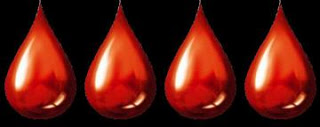Director: Joseph Kuo
Notable Cast: Wen Chiang-Long, Yi Yuan, Lu Ping, Liu
Hsiu-Yun, Yee Hung, Yuan Shen, Yeung San-San, Tseng Chao, Yen Chung, Hu
Chiu-Ping
While the phrase “never judge a book by its cover” can
easily be translated to cinema, it’s not the poster that’s the initial obstacle
for Shaolin Kung Fu. On the contrary, the original artwork (as seen at
the top of this review) is quite incredible in its own right. What is the speed
bump in getting audiences to watch this Joseph Kuo underground classic is the title?
It’s fairly easy to play the “kung fu movie name generator”
game by just remixing some generic words like ‘sword,’ ‘ninja,’ ‘Shaolin,’ or
‘kung fu.’ In the case of Shaolin Kung Fu, it’s a shock that they
couldn’t at least think of one more word to tack on there to make it slightly
more distinct. It’s a film about a rickshaw company, maybe throw that in there
somehow? Hell, I’d even take Shaolin Kung Fu Vengeance to designate the
tone of the latter half.
Nonetheless, we are left with Shaolin Kung Fu and in
spite of its forgettable title, the film is surprisingly one of Joseph Kuo’s
best. It’s fairly straightforward with its plotting and characters, but a
breakneck sense of pacing, a sweet marriage at the center, and some visceral
fight sequences make this a hidden gem in the martial arts world. If anything,
it’s perhaps the biggest surprise for fans in the Cinematic Vengeance box set
from Eureka.
Granted, for those who enjoy the more outlandish Joseph Kuo
films like The Mystery of Chessboxing or Born Invincible, then Shaolin
Kung Fu might feel a bit mundane. Don’t let its simplicity fool you, it’s
blue collar attitude toward working-class rage and how the classicism of its
story seethes under the surface. If anything, this is a film that certainly owes
its stripped-back and punchy concept to the success of Bruce Lee over at Golden
Harvest just a couple of years previous, but it’s distinctive in its building
tension and explosive bursts of violence from the frustrations of its
characters.
Its simplicity in storytelling, where a villainous rickshaw
company is using violence and political/criminal connections to oppress their
competition and the various citizens in the town, which allows the characters
to be grounded in their emotions. Wen Chiang-Long serves as the charming hero
with relative ease, serving as a charmingly loving husband to his doting wife
while bursting into the anger and frustration of a man craving justice with
strong conviction.
His relationship with the townsfolk, and more importantly
his wife, fuels the heart of the film and as the villains continually push him
to violence, his reaction and how it spins wildly out of control is an
effective narrative that makes its stripped back layers work. As the action
escalates, in the usual basher kung fu manner, it’s heightened by the character
work and the tensions that have been building in the plot. It’s smartly
executed while maintaining that classic mid-70s kung fu entertainment
value.
If anything, the carnage around these two rickshaw cart
companies in the film is far better than expected, both in terms of its
efficient action pacing and its character work. It’s not the most original
story, as if follows the established formula of the time period, but it’s
executed in such a way that it’s easy to match its step. There’s an intensity
and honesty to the film that resonates so much louder than expected. While the
Cinematic Vengeance box set contains a ton of kung fu gems, Shaolin Kung Fu
might be one of the most pleasant surprises.
So yes, please don’t judge this film by its mundane title.



No comments:
Post a Comment